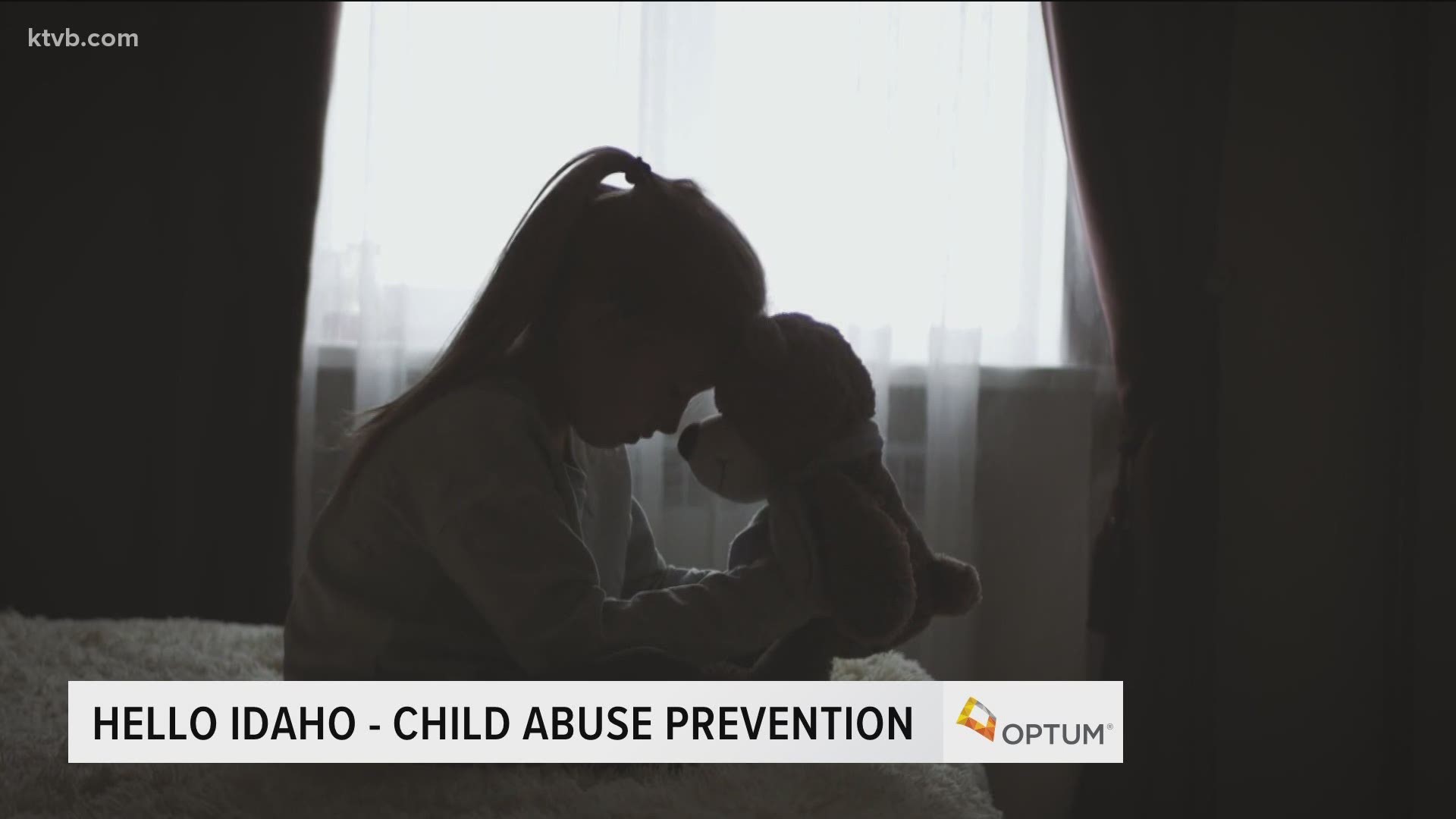BOISE, Idaho — Note: This story discusses child abuse and may be triggering to some readers.
If you've recently traveled down Broadway Avenue and Front Street in Boise, you may have noticed an array of blue pinwheels in front of Optum Idaho. In fact, you can find these pinwheels all over the community during the month of April.
April is National Child Abuse Prevention Month, dedicated to bringing awareness to child abuse and teaching others what they can do to protect the children of the community.
In the last year, child abuse cases have increased across the Gem State, according to Optum Idaho's Senior Clinical Program Consultant, Dr. Dennis Woody. He believes the uptick in abuse cases is connected to the ongoing COVID-19 pandemic.
"I think the isolation the pandemic has put on families has really made the situation worse in the sense that some of the underlying issues associated with child abuse are very clearly related to a sense of connectedness in your social group," Woody said.
Maintaining a good support system within the family is crucial to the well-being of all members, primarily the children.
"Consequently, we tend to do a lot better when we're confident and willing to reach out to others for information or help with things we don't know about," Woody said.
Child abuse is not just physical; it captures a spectrum of high-risk circumstances and can include neglect and physical, mental, or sexual abuse.
An abusive relationship between a child and a parent is very destructive and, according to Woody, can result in the most enduring effects.
"That trusted authority figure or guardian wasn't there, wasn't capable of providing a safe harbor for the child," he explained. "As a consequence, you see in children who are abused or have been abused a very substantial amount of characteristics that are long-lasting."
Woody added that children who have been abused or are in chronic situations of abuse oftentimes manifest problems with their capacity to trust others, as their vigilance for risk is always required to be on.
"That sort of corrosive exposure to social interaction for young children tends to be very destructive and as a consequence, it impacts them negatively," he said. "Not just in their relationship with adults but also within their peers. They oftentimes have real difficulties regulating their emotions when they perceive threat or stress."
Among the devastating mental and physical effects abuse can have on a child is a loss of the child's self-worth.
"When things that are bad happen I think it's important for parents to work with children and communicate with them and help them understand resilience and recovery is part of our reaction," Woody explained. "Even though it hurts and we don't want to talk about it, eventually it will get better if we can continue to work on it and talk about it."
What can I do if I believe a child is/witness a child being abused?
"If you see something, say something because you as an adult are a mandated reporter," Woody said. "You could save the life of the child."
If you suspect abuse, neglect or abandonment of a child, it is vital that you report it. Call 1-855-552-KIDS (5437) or the Idaho CareLine at 2-1-1 if you suspect harm to a child.
Need help and emotional support? Call the Idaho Children’s Trust Fund Help Now Line at 1-986-867-1073 or visit idahofamilysupport.org. You can also call the Optum Idaho public toll-free helpline at 1-866-342-6892, available to all Idahoans 24/7.
Watch more 'Hello Idaho':
Watch our latest conversations about mental health in our YouTube playlist:

